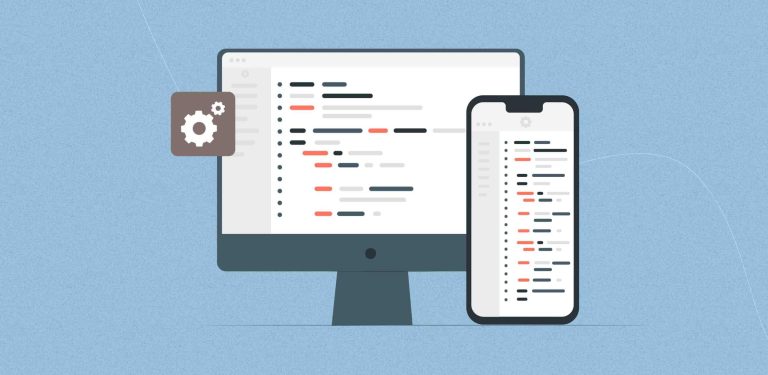


eLearning app development has witnessed unprecedented growth, becoming a cornerstone of modern education and professional training. As technology revolutionizes various sectors, the education industry is no exception. eLearning app development is now a critical component in providing accessible, flexible, and interactive learning experiences. For businesses and educational institutions aiming to develop these e-learning applications, outsourcing has become a highly favored strategy. India, in particular, has emerged as a leading destination for outsourcing, offering a unique combination of cost-efficiency, abundant talent, and high-quality service.
This comprehensive guide delves into why outsourcing eLearning app development to India is a strategic choice, emphasizing the cost benefits, expertise, and future trends in the industry.
The eLearning industry is experiencing rapid expansion globally. According to recent studies, the global eLearning market was valued at approximately $250 billion in 2020 and is projected to reach nearly $1 trillion by 2027. This growth is fueled by several factors, including the increasing demand for online education, advancements in technology, and the need for continuous learning in a dynamic job market.
Several key factors are driving the demand for eLearning app solutions:
With the proliferation of internet access, more people can access online education platforms. This accessibility has made eLearning a viable option for people in remote and underserved areas.
The flexibility and convenience of online education have made it increasingly popular among students and professionals alike. It allows learners to access courses at their own pace and schedule, balancing their studies with work and personal commitments.
The COVID-19 pandemic accelerated the adoption of eLearning as schools, universities, and training institutions worldwide shifted to online platforms. This shift highlighted the importance of digital education solutions and created a long-term change in how education is delivered.
eLearning app development has fundamentally transformed the educational landscape by providing interactive and engaging learning experiences that are accessible anytime, anywhere. The eLearning apps leverage cutting-edge technology to create dynamic learning environments that cater to a diverse range of educational needs, from K-12 students to professional training and corporate learning. Here’s a closer look at how eLearning apps are revolutionizing education:
eLearning apps incorporate various interactive elements that make learning more engaging and effective. Unlike traditional classroom settings, where learners often passively receive information, online education apps encourage active participation. Features such as clickable elements, drag-and-drop activities, and interactive quizzes help learners engage with the content actively, reinforcing their understanding and retention of information.
Gamification is one of the most impactful features of eLearning apps. By integrating game-like elements such as points, badges, leaderboards, and rewards, these online education apps make learning fun and motivating. Gamification taps into the human desire for competition and achievement, encouraging learners to complete tasks, reach higher levels, and continuously improve their skills. This approach not only makes the learning process more enjoyable but also enhances learner engagement and motivation.
Quizzes and assessments are essential components of eLearning apps that provide immediate feedback to learners. These tools allow learners to test their knowledge and understanding of the material in real time. Instant feedback helps identify areas where learners may need improvement, allowing them to focus on specific topics that require further study. Additionally, quizzes and assessments can be designed to adapt to the learner’s progress, providing customized questions that match their skill level.
eLearning apps often feature interactive videos and multimedia content, including animations, simulations, and infographics. These elements make complex concepts easier to understand by providing visual and auditory explanations. Interactive videos may include clickable hotspots, branching scenarios, and in-video quizzes, allowing learners to engage with the content actively. This multimedia approach caters to different learning styles, whether visual, auditory, or kinesthetic, ensuring that learners can absorb information in the way that suits them best.
One of the significant advantages of eLearning apps is the ability to provide real-time feedback and personalized learning paths. As learners interact with the app, their progress is tracked, and data is collected on their strengths and weaknesses. This data can be used to tailor the learning experience to each individual’s needs, offering personalized recommendations, additional resources, and targeted exercises. Real-time feedback helps learners stay on track, correct mistakes immediately, and continuously progress toward their learning goals.
eLearning apps break down the barriers of time and location, making education accessible to anyone with an internet connection. Learners can access courses and materials from anywhere in the world, at any time, making it easier to fit education into their busy schedules. This flexibility is particularly beneficial for working professionals, parents, and individuals in remote or underserved areas, who may not have access to traditional educational institutions.
eLearning apps cater to a wide range of educational needs, extending beyond traditional classroom subjects. They are used for K-12 education, higher education, vocational training, language learning, professional development, and corporate training. For K-12 students, these e-learning apps offer supplementary educational resources, interactive exercises, and preparation for exams. In higher education, they provide online courses, lectures, and degree programs. In the corporate sector, elearning apps are used for onboarding, compliance training, skill development, and performance support.
Many eLearning apps also incorporate social and collaborative features that enable learners to connect with peers, instructors, and experts. Discussion forums, group projects, and live chat functionalities foster a sense of community and collaboration. Learners can share knowledge, ask questions, and work together on assignments, enhancing the overall learning experience. This social aspect of e-learning apps helps build a supportive learning environment, where learners can network and collaborate with others from diverse backgrounds.
eLearning apps provide valuable data-driven insights and analytics to educators and administrators. By tracking learners’ interactions, progress, and performance, these elearning apps generate detailed reports and analytics that help educators understand the effectiveness of the content and teaching methods. This data can be used to make informed decisions, improve course design, and tailor instruction to meet the needs of different learners.
eLearning apps offer a cost-effective and scalable solution for education and training. They eliminate the need for physical infrastructure, travel, and printed materials, reducing costs for both learners and institutions. Additionally, these e-learning apps can easily scale to accommodate a large number of users, making them an ideal solution for organizations looking to provide training to employees or educational institutions aiming to reach a broader audience.
The eLearning industry is continuously evolving, with several emerging trends shaping its future:
AR and VR technologies are being increasingly used to create immersive learning experiences. They allow learners to interact with virtual environments, enhancing their understanding of complex concepts.
AI is being used to create personalized learning experiences by analyzing learner data and providing customized content and assessments.
Gamification involves incorporating game-like elements into the learning process, such as points, badges, and leaderboards. This approach makes learning more engaging and motivates learners to achieve their goals.
Outsourcing education app development involves hiring external organizations or individuals to handle tasks that could otherwise be performed in-house. In software development, this includes everything from coding and design to quality assurance and maintenance. Outsourcing has become a common practice in the tech industry due to the numerous benefits it offers.
When businesses consider outsourcing, they often choose between three primary models: onshore, offshore, and nearshore outsourcing. Each model has its distinct advantages and challenges, depending on the specific needs of the project and the company’s goals.
Onshore outsourcing refers to the practice of hiring service providers or developers within the same country as the hiring company. This model offers several key benefits:
Offshore outsourcing involves hiring service providers from countries that are geographically distant from the hiring company’s home country. This model is often chosen for its significant cost advantages and access to a global talent pool. India is one of the most popular destinations for offshore outsourcing, especially in the field of e-learning app development. Key advantages of offshore outsourcing include:
Cost Efficiency: Offshore outsourcing can lead to substantial cost savings. Countries like India offer highly skilled labor at a fraction of the cost compared to developed nations. This cost efficiency allows companies to allocate resources to other critical areas, such as marketing or product development.
Access to Global Talent: Offshore outsourcing opens up a vast talent pool with specialized skills. Countries like India are renowned for their technical expertise, particularly in IT and software development. Companies can access top-tier talent without the constraints of geographical location.
Scalability and Flexibility: Offshore service providers often have large teams that can scale according to the project’s needs. This flexibility allows companies to ramp up or down resources quickly, depending on the project phase and requirements.
Round-the-Clock Operations: The time zone difference between the hiring company and the offshore provider can be advantageous. It enables round-the-clock operations, where the offshore team can work on tasks while the onshore team is offline, speeding up project timelines.
Nearshore outsourcing is a model that involves outsourcing services to neighboring or nearby countries. This approach aims to balance the cost savings of offshore outsourcing with the ease of communication and cultural similarities of onshore outsourcing. Benefits of nearshore outsourcing include:
Cost Savings: While nearshore outsourcing may not offer the same level of cost savings as offshore outsourcing, it is generally more cost-effective than onshore outsourcing. Companies can still benefit from lower labor costs while maintaining closer proximity to their outsourced team.
Easier Communication: Geographical proximity often means smaller time zone differences, making real-time communication more manageable. Additionally, nearshore countries may have more cultural similarities with the hiring company’s country, facilitating better understanding and collaboration.
Access to Regional Talent: Nearshore outsourcing provides access to a diverse talent pool within the same region. This can be particularly advantageous for companies looking to expand their market reach within a specific geographic area.
Legal and Regulatory Ease: Working with nearshore providers often simplifies legal and regulatory considerations, as the laws and business practices may be more aligned with those of the hiring company’s country.
Outsourcing eLearning app development provides numerous advantages that can be crucial for businesses looking to leverage modern technology while optimizing resources. Here are some key benefits:
Cost Efficiency
One of the most compelling reasons to outsource eLearning app development is the potential for significant cost savings. Countries like India offer lower labor rates compared to Western nations. This cost differential arises due to differences in living costs and market rates for skilled professionals. In addition to lower salaries, operational expenses such as infrastructure, utilities, and administrative costs are also considerably lower. Companies can avoid the overhead expenses associated with hiring and training in-house teams, including benefits, insurance, and taxes.
Furthermore, outsourcing eliminates the need for investing in expensive hardware, software, and licenses, as these are typically provided by the outsourcing partner. By outsourcing, businesses can allocate their financial resources more strategically, focusing on areas that directly impact growth and profitability.
Access to Specialized Skills
Outsourcing provides businesses with access to a global talent pool that possesses specialized skills and expertise. This is particularly beneficial for eLearning app development, which often requires a diverse set of competencies, such as UI/UX design, mobile and web development, backend infrastructure, content management systems, and integration of advanced technologies like AI, AR/VR, and gamification.
Many outsourcing destinations, including India, have a strong educational infrastructure that produces highly skilled professionals in these areas. These experts bring a wealth of experience from working on a variety of projects across different industries, enabling them to provide innovative solutions and best practices. For businesses, this means they can leverage cutting-edge technology and specialized knowledge without the need to invest in expensive training or recruitment processes.
Focus on Core Business Functions
Outsourcing education app development tasks allows companies to concentrate on their core business functions. For businesses involved in elearning, this might include content creation, marketing strategies, business development, and customer support. By delegating technical aspects such as eLearning app development, maintenance, and updates to an external partner, internal teams can dedicate more time and resources to activities that directly contribute to their unique value proposition and competitive edge.
This focus not only enhances operational efficiency but also improves the overall quality and consistency of the company’s core offerings. It enables management to allocate their time and energy towards strategic planning and decision-making, fostering innovation and growth.
Flexibility and Scalability
Another significant advantage of outsourcing e-learning app development is the flexibility it offers in scaling teams and resources according to project requirements. The demand for eLearning app development resources can fluctuate based on the project phase—initial development, testing, deployment, or ongoing maintenance. Outsourcing allows companies to easily scale their teams up or down, depending on the workload. This flexibility is particularly useful for managing costs and timelines, as businesses can avoid the challenges and expenses associated with hiring full-time employees for short-term projects.
Additionally, outsourcing partners often have access to a wide range of skills, allowing them to quickly assemble teams with the necessary expertise for specific tasks. This agility enables businesses to respond swiftly to market changes, incorporate new features or technologies, and meet deadlines efficiently.
India’s IT industry has a rich history and has evolved significantly over the past few decades. The country has become a global leader in IT services, with a strong infrastructure and a skilled workforce. The Indian government has also played a pivotal role in promoting the IT sector, offering various incentives and support.
India’s journey to becoming a global outsourcing hub began in the 1990s with the liberalization of its economy. The country’s emphasis on technical education, proficiency in English, and cost advantages made it an attractive destination for IT and software development services. Today, India accounts for a significant share of the global IT outsourcing market.
India is a dominant player in the global IT outsourcing market, with a market share of over 55%. The country is home to more than 5,000 IT firms, ranging from large multinational corporations to innovative startups. India’s IT export revenue reached approximately $150 billion in 2020, underscoring its importance in the global tech industry.And the growth in IT industry is expected to be about $350 billion by 2025.
One of the primary reasons companies choose to outsource elearning app development to India is the substantial cost savings. The cost of hiring e-learning app developers in India is significantly lower than in Western countries. For instance, the hourly rate for a senior developer in the United States can range from $80 to $150, while in India, it ranges from $20 to $50.
Detailed breakdown of cost savings:
The favorable exchange rates between the Indian Rupee and major currencies like the US Dollar and Euro provide additional cost benefits for companies outsourcing to India. This exchange rate advantage allows companies to get more value for their money.
Numerous case studies highlight the cost-effectiveness of outsourcing to India. For example, a US-based eLearning company saved over 50% on development costs by outsourcing their eLearning app development to an Indian firm. This significant cost reduction allowed the company to allocate more resources to content development and marketing.
Outsourcing education app development to India also offers hidden cost benefits, such as reduced training costs and quick ramp-up times. Indian e-learning app developers are often well-versed in the latest technologies and platforms, minimizing the need for extensive training. Additionally, Indian firms can quickly scale teams based on project requirements, ensuring timely delivery.
India boasts a vast pool of talented professionals, making it a top choice for eLearning app development. The country has over 4 million IT professionals, with approximately 1.5 million engineering graduates entering the workforce annually. This continuous influx of skilled talent ensures that companies have access to a diverse and capable workforce.
India is home to prestigious technical institutions, such as the Indian Institutes of Technology (IITs) and the Indian Institutes of Information Technology (IIITs). These institutions offer world-class education and training in computer science, engineering, and related fields. Graduates from these institutions are highly sought after for their technical expertise and problem-solving skills.
Indian elearning app developers are renowned for their specialized skills and expertise in a wide array of technologies crucial for eLearning app development. This depth of knowledge spans from traditional programming languages to cutting-edge emerging technologies, making India a premier destination for developing high-quality eLearning app solutions.
Indian e-learning app developers excel in a variety of programming languages essential for creating robust and scalable eLearning applications. Their proficiency includes:
This broad expertise in programming languages allows Indian developers to choose the most suitable technology stack for a given project, ensuring optimal performance, security, and user experience.
Indian elearning app developers have extensive experience working with a variety of popular eLearning platforms, enabling them to tailor solutions that meet specific educational needs. This includes:
Moodle: As one of the most widely used open-source learning management systems (LMS), Moodle offers flexibility and a range of features. Indian developers are adept at customizing Moodle to fit specific institutional or organizational requirements, from course creation to user management and analytics.
Blackboard: Known for its robust features and integration capabilities, Blackboard is a leading LMS in higher education and corporate training. Indian developers have experience in customizing and integrating Blackboard with other systems, enhancing its functionality and user experience.
Canvas: With its intuitive design and rich feature set, Canvas is a popular choice for educational institutions. Indian developers leverage Canvas’s open architecture to develop custom modules and integrations, extending its capabilities to suit various learning scenarios.
Enlight LMS: Enlight LMS is a cutting-edge Learning Management System (LMS) platform designed to simplify the teaching and learning process for all, from young students to university professors and corporate executives. The developers can enhance Enlight LMS’s functionality by integrating it with other educational tools and resources, creating a seamless learning environment.
The ability to work with these platforms means Indian developers can develop new eLearning applications or seamlessly integrate new features into existing systems, providing end-users with a cohesive and efficient learning experience.
Indian elearning app developers are not only proficient in established technologies but are also at the forefront of adopting and implementing emerging technologies in eLearning. These include:
Artificial Intelligence (AI): AI is revolutionizing eLearning by offering personalized learning experiences. Indian developers are skilled in using AI algorithms to analyze learner data and provide customized content, adaptive assessments, and personalized feedback. AI-driven chatbots and virtual tutors developed by Indian teams enhance the interactivity and responsiveness of eLearning apps.
Augmented Reality (AR) and Virtual Reality (VR): AR and VR technologies are transforming how learners engage with content, providing immersive and interactive learning experiences. Indian developers create AR/VR applications that simulate real-world scenarios, allowing learners to practice skills in a controlled virtual environment. This is particularly useful in fields such as medicine, engineering, and vocational training, where hands-on experience is crucial.
Gamification: Gamification involves incorporating game-like elements, such as points, badges, and leaderboards, into non-game contexts to motivate and engage users. Indian developers design gamified eLearning applications that make learning more engaging and enjoyable. By incorporating challenges, rewards, and competitive elements, they enhance user engagement and retention, making the learning process more effective.
This expertise in emerging technologies positions Indian developers as leaders in creating innovative eLearning solutions that meet the evolving needs of learners and educators. Their ability to integrate these technologies into eLearning apps ensures that users receive a modern, interactive, and personalized learning experience.
Several Indian companies have made significant contributions to the eLearning space. For instance, Byju’s, an Indian edtech company, has become one of the largest online learning platforms globally, offering interactive video lessons and personalized learning experiences. Other notable success stories include Unacademy, Vedantu, and Toppr, all of which have developed innovative eLearning solutions.
Quality assurance is a critical aspect of eLearning app development, and Indian development firms adhere to rigorous quality assurance practices. These practices include automated testing, manual testing, and user acceptance testing to ensure the delivery of high-quality products.
Many Indian companies are certified in international quality standards such as ISO 9001 and CMMI (Capability Maturity Model Integration). These certifications reflect a commitment to quality and continuous improvement, providing clients with confidence in the reliability of the services provided.
Indian IT companies have set global benchmarks in software development and project management. They have a proven track record of delivering projects on time and within budget, meeting the high expectations of clients worldwide.
Positive testimonials and reviews from global clients highlight the reliability and professionalism of Indian e-learning app developers. Clients often praise the high quality of deliverables, excellent communication, and proactive problem-solving.
Several high-quality eLearning applications developed in India have garnered global recognition. Examples include Byju’s, which offers a comprehensive learning app with interactive videos and quizzes, and Coursera, which has partnered with Indian developers to expand its course offerings and improve its platform.
India is the second-largest English-speaking country in the world, with a high level of English proficiency among its developers. This proficiency ensures clear communication and reduces the likelihood of misunderstandings during the eLearning app development process.
Indian professionals are familiar with Western business practices and culture, making it easier to align with clients’ expectations and work culture. This cultural compatibility facilitates smoother collaboration and project execution.
Indian companies use a variety of communication tools and strategies to facilitate smooth collaboration. These include regular video calls, emails, project management tools, and instant messaging platforms. Clear communication channels help in addressing issues promptly and maintaining transparency.
The time zone difference between India and Western countries allows for round-the-clock work cycles. Indian teams can continue working on projects while clients are offline, ensuring continuous progress and faster turnaround times.
Effective management of remote teams involves regular communication, setting clear expectations, and using collaboration tools. Indian companies are well-versed in these practices, ensuring seamless project execution and client satisfaction.
Outsourcing e-learning app development to India offers unparalleled scalability, which is crucial for managing dynamic project demands. Businesses often encounter varying workloads throughout a project’s lifecycle, influenced by factors such as market conditions, budget adjustments, or new feature requirements. In such scenarios, the ability to scale development teams up or down is invaluable. Indian outsourcing firms excel in this regard, providing the flexibility to quickly ramp up resources when a project demands rapid development or new features.
This scalability is particularly advantageous for projects with fluctuating requirements or tight deadlines. For instance, during the initial stages of development, a larger team may be required to design and implement core functionalities swiftly. As the project progresses to a maintenance phase, the team can be downsized to focus on updates and minor improvements. This adaptability not only optimizes costs but also ensures that the project is resourced appropriately at all times, leading to efficient and effective project management.
One of the standout benefits of outsourcing to India is the access to a diverse and skilled talent pool. The Indian IT industry is known for its vast range of expertise, encompassing various technologies and programming languages. Whether a project requires specialized knowledge in artificial intelligence (AI), augmented reality/virtual reality (AR/VR), gamification, or niche programming languages like Python, Java, or Swift, Indian developers have the necessary skills to meet these needs.
This on-demand access to diverse expertise is particularly beneficial for e-learning app development, where projects may require specialized skills at different stages. For example, a project might start with a need for UX/UI designers to create an intuitive user interface, followed by data scientists to implement AI-driven personalization features, and finally, AR/VR experts to develop immersive learning modules. Indian firms can provide these varied skills, ensuring that the right expertise is applied at the right time, enhancing the overall quality and effectiveness of the app.
Indian outsourcing companies offer a range of flexible engagement models to suit different client needs and budget constraints. The three primary models include:
These engagement models provide clients with the flexibility to choose the best approach based on their project’s specific needs, budget, and risk tolerance. This adaptability ensures that projects are managed efficiently and cost-effectively.
Indian eLearning app development firms frequently employ Agile and DevOps methodologies to enhance project management and delivery. Agile methodology focuses on iterative development, allowing for regular updates, continuous feedback, and rapid adjustments to changes. This approach is particularly advantageous in e-learning app development, where user feedback and market demands can necessitate quick pivots and updates.
DevOps complements Agile by fostering a culture of collaboration between development and operations teams. It emphasizes continuous integration, continuous delivery, and automated testing, ensuring that new features and updates are rolled out swiftly and smoothly. Together, Agile and DevOps methodologies enable Indian firms to deliver high-quality products on time, with the flexibility to adapt to changing requirements and market conditions.
Several projects have demonstrated the successful scalability and flexibility offered by Indian eLearning app developers. One notable example involves a European e-learning company that partnered with an Indian firm to develop an interactive learning platform. Initially, the project required a small team to establish the basic infrastructure and features. However, as the company gathered user feedback and identified new market opportunities, the Indian firm quickly scaled up the team to introduce advanced functionalities, such as AI-driven personalized learning paths and AR-based interactive content.
The ability to rapidly scale the team allowed the company to respond promptly to user demands and market trends, leading to a highly successful product launch. The platform’s enhanced features attracted a broader user base, significantly boosting the company’s market presence and revenue.
This case study illustrates the effectiveness of India’s flexible and scalable project management approach, showcasing how businesses can leverage Indian expertise to achieve project success. By tapping into India’s rich talent pool and adaptable engagement models, companies can navigate the complexities of e-learning app development with confidence, ensuring that their projects are delivered on time, within budget, and to the highest standards of quality.
Read on Personalized Learning with Custom Education Software: Tailoring Learning to Individual Needs.
Data security is a critical concern in eLearning app development, especially when dealing with sensitive information such as personal data and intellectual property. India has stringent data protection laws, including the Information Technology Act and GDPR compliance, to safeguard data privacy and security.
Indian IT companies prioritize data security and implement a comprehensive set of measures to safeguard client information. These measures are designed to protect sensitive data from unauthorized access, breaches, and other cyber threats. Here are the key security protocols typically employed by Indian IT companies:
Data Encryption
Data encryption is a fundamental security measure that involves converting data into a coded format, making it unreadable to unauthorized users. Indian IT companies use advanced encryption techniques to ensure that data remains secure during transmission and storage.
Secure Servers
Indian IT companies ensure that data is stored on secure servers with stringent access controls. These servers are equipped with multiple layers of security to prevent unauthorized access and protect data integrity.
Regular Audits
Regular security audits are an essential part of the security framework adopted by Indian IT companies. These audits involve a thorough examination of the company’s security policies, procedures, and infrastructure to identify potential vulnerabilities and areas for improvement.
To ensure the protection of sensitive information, Indian companies often sign Non-Disclosure Agreements (NDAs) with their clients. These agreements legally bind the parties to confidentiality, preventing unauthorized sharing of information. Additionally, contractual safeguards are put in place to protect intellectual property rights.
Clear agreements outlining the ownership of intellectual property (IP) are essential in outsourcing projects. Indian companies are committed to protecting clients’ IP rights and ensure that all IP developed during the project remains the property of the client.
While outsourcing e-learning app development to India offers a wealth of advantages, including cost savings and access to a skilled workforce, it is not without its challenges. Understanding and addressing these challenges proactively can ensure a smooth and successful outsourcing experience. Below are some common challenges faced in outsourcing to India and strategies to overcome them:
Time Zone Differences
One of the most notable challenges in outsourcing to India is the time zone difference. India Standard Time (IST) is typically 9.5 to 12.5 hours ahead of the United States and 4.5 to 5.5 hours ahead of most European countries. This disparity can make real-time communication and collaboration difficult, especially if immediate feedback or urgent decision-making is required.
Communication Barriers
Although India has a high level of English proficiency, accents, idioms, and cultural nuances can sometimes create communication barriers. Misunderstandings may arise due to different interpretations of phrases or expressions, which can affect the clarity and efficiency of communication. Additionally, the indirect communication style that can be present in Indian business culture might lead to ambiguity in feedback or instructions.
To mitigate the challenges associated with outsourcing, companies can implement several strategies that foster clear communication, collaboration, and mutual understanding:
Regular Communication and Status Updates
Establishing a routine for regular communication is crucial. Scheduling daily or weekly check-ins via video calls, emails, and instant messaging platforms can keep all stakeholders informed about the project’s progress. This consistent communication helps in addressing issues promptly and ensuring that the project stays on track. Clearly defining the scope and expectations in written form can also help minimize misunderstandings.
Using Project Management Tools and Collaboration Platforms
Leveraging modern project management and collaboration tools can streamline communication and task management. Tools like Jira, Trello, Slack, and Microsoft Teams offer features such as task assignments, progress tracking, and real-time messaging. These platforms provide a centralized space where teams can collaborate, share updates, and access project-related documents. They also help in documenting all communications, which can be referenced later if needed.
Cultural Sensitivity Training and Building Strong Relationships
Understanding cultural differences and investing in cultural sensitivity training can significantly enhance collaboration. Such training helps team members appreciate and respect each other’s cultural backgrounds, leading to smoother interactions. Building strong personal relationships with the outsourced team can also be beneficial. Acknowledging cultural holidays, celebrating milestones, and showing appreciation for the team’s efforts can foster a positive and cooperative working environment.
Choosing the right outsourcing partner is critical to the success of the project. Here are some key considerations:
Expertise
Assess the partner’s expertise in e-learning app development and relevant technologies. Look for companies with a proven track record in developing similar projects. Inquire about the team’s technical skills, certifications, and experience with specific programming languages, platforms, and tools that are crucial for your project.
Portfolio
Review the potential partner’s portfolio to gauge their experience and the quality of their work. Examine previous projects they have completed, paying attention to the complexity, design, and functionality of the apps they have developed. A diverse portfolio can indicate the company’s ability to handle various challenges and innovate.
Client Reviews
Check client reviews and testimonials to understand the company’s reputation and reliability. Client feedback can provide insights into the company’s communication style, adherence to deadlines, and responsiveness to feedback. Look for reviews on independent platforms or request direct contact with previous clients for candid assessments.
Conducting thorough due diligence is essential to verify the capabilities of the outsourcing partner. Here’s how to approach it:
Researching the Company
Investigate the company’s history, financial stability, and industry reputation. A well-established company with a stable financial background is more likely to provide reliable services. Check for any legal issues or controversies associated with the company.
Requesting References
Ask for references from previous clients who have worked on similar projects. Speaking with these references can provide a firsthand account of the company’s strengths and weaknesses. Inquire about the project’s outcome, any challenges faced, and how the company addressed them.
Conducting Interviews
Interview the team members who will be working on your project to assess their skills and expertise. During the interview, discuss their approach to project management, problem-solving, and quality assurance. Understanding the team’s workflow and communication style can help set expectations and ensure a good fit.
Evaluating Communication Practices
Assess how the company communicates during the initial stages of engagement. Prompt and clear responses during the negotiation and onboarding process are good indicators of how communication will be handled during the project. Ensure there is a designated point of contact who will manage the project and maintain regular communication with your team.
When it comes to eLearning app development, choosing the right partner is crucial to ensuring the success of your project. Enfin, as a leading eLearning app development company in India, brings extensive experience and a deep understanding of the eLearning landscape to every project we undertake. Here’s why we stand out as your ideal partner for developing innovative and effective eLearning solutions:
At Enfin, we offer a full suite of eLearning app development services tailored to meet the unique needs of our clients. Whether you require a fully customized eLearning platform, a mobile learning app, or integration with existing Learning Management Systems (LMS), we have the expertise to deliver. Our education app development services encompass the entire development lifecycle, including:
At Enfin, we stay at the forefront of technological advancements to provide our clients with cutting-edge solutions. Our team is proficient in the latest technologies and tools used in eLearning app development, including:
At Enfin, we are committed to delivering high-quality products that meet your expectations. Our development process is transparent and collaborative, allowing you to stay informed and involved at every stage. We prioritize timely delivery, ensuring that your project is completed within the agreed timeline and budget. Our agile development approach allows us to adapt to changes quickly and efficiently, minimizing disruptions and delays.
Our client-centric approach ensures that your needs and preferences are at the heart of everything we do. We take the time to understand your business objectives, target audience, and educational goals. This deep understanding enables us to create customized e-learning app solutions that align with your vision and provide value to your learners. We maintain open communication throughout the project, providing regular updates and seeking feedback to ensure that the final product meets your requirements.
Enfin has a proven track record of successfully delivering eLearning app development projects for a diverse range of clients. Our portfolio includes projects for educational institutions, corporate training programs, and edtech startups. We have received positive feedback from our clients for our professionalism, technical expertise, and commitment to excellence. Our case studies demonstrate our ability to develop high-quality, innovative eLearning solutions that deliver measurable results.
Our relationship with our clients does not end with the delivery of the project. We provide continuous support and maintenance services to ensure that your eLearning app remains up-to-date and functions smoothly. Whether you need technical support, feature enhancements, or content updates, our team is always available to assist you.
We offer competitive pricing for our eLearning app development services without compromising on quality. Our transparent pricing model ensures that you receive excellent value for your investment. We work with you to find a pricing structure that fits your budget while delivering a high-quality product that meets your needs.
Boost Your Educational Platform with Professional eLearning App Development!
The eLearning landscape is evolving rapidly, driven by the integration of advanced technologies and innovative methodologies. The future of eLearning app development is poised to be transformed by several emerging trends, which are reshaping the way education is delivered and consumed. Key among these trends are:
AI and Machine Learning
Artificial Intelligence (AI) and Machine Learning (ML) are revolutionizing eLearning by creating highly personalized and adaptive learning experiences. AI algorithms can analyze a learner’s behavior, preferences, and performance to tailor content and assessments that meet their specific needs. This results in a more efficient learning process, where students receive targeted resources and support. Intelligent tutoring systems, powered by AI, provide real-time feedback and guidance, helping learners overcome challenges and improve their understanding of complex topics. These technologies also enable predictive analytics, which can identify at-risk students and offer interventions to improve their outcomes.
AR/VR for Immersive Learning Experiences
Augmented Reality (AR) and Virtual Reality (VR) are making learning more immersive and interactive. These technologies allow learners to explore virtual environments and simulations, providing a hands-on experience that is difficult to achieve through traditional methods. In fields such as medicine, engineering, and architecture, AR and VR can simulate real-world scenarios, enabling students to practice skills and experiment with concepts in a safe and controlled setting. For instance, medical students can perform virtual surgeries, while engineering students can work on virtual machinery. This immersive approach enhances engagement, retention, and understanding, making complex subjects more accessible and comprehensible.
Gamification and Interactive Content Development
Gamification is the application of game-design elements in non-game contexts, and it has become a powerful tool in eLearning. By incorporating elements such as points, badges, leaderboards, and challenges, gamification motivates learners and increases their engagement. Interactive content, including quizzes, simulations, and interactive videos, further enhances the learning experience by making it more engaging and participatory. These approaches not only make learning more enjoyable but also promote active learning and critical thinking. As a result, students are more likely to retain information and apply their knowledge in practical situations.
Indian eLearning app developers are at the forefront of integrating these emerging technologies into eLearning app solutions. With a strong emphasis on continuous learning and professional development, Indian tech professionals are consistently updating their skills and expertise to keep pace with global trends. They are well-versed in the latest tools and platforms, ensuring they can deliver innovative and effective eLearning applications.
Innovations in AI and Machine Learning for Personalized Learning
Indian e-learning app developers are leveraging AI and ML to create personalized learning paths that adapt to individual learner profiles. By analyzing data on learner interactions, preferences, and progress, these systems can dynamically adjust the content and difficulty level to optimize learning outcomes. For example, if a student struggles with a particular concept, the system can provide additional resources or alternative explanations to aid understanding. This level of customization enhances the learning experience, making it more effective and engaging.
The Use of AR/VR for Immersive Learning Experiences
Indian developers are pioneering the use of AR and VR in education, creating virtual labs, 3D models, and immersive simulations. These e-learning applications are particularly valuable in fields that require practical experience, such as healthcare and engineering. For instance, virtual dissection labs in biology courses allow students to explore anatomy in detail, while VR simulations in engineering provide a risk-free environment for testing and refining designs. These tools not only enhance the learning experience but also offer opportunities for experimentation and innovation.
Gamification and Interactive Content Development
Incorporating gamification and interactive content into eLearning platforms, Indian developers are transforming traditional learning methodologies. They design engaging modules that include interactive quizzes, real-time challenges, and peer competition through leaderboards. These elements foster a sense of achievement and competition, motivating learners to engage more deeply with the material. Additionally, developers use storytelling and scenario-based learning to create immersive experiences that connect theoretical knowledge with real-world applications.
India’s position as a leader in the IT and tech industry, combined with its vast talent pool and expertise in emerging technologies, positions the country as a key player in the future of global eLearning solutions. Indian developers are not only skilled in the technical aspects of eLearning app development but also bring a deep understanding of diverse educational needs and cultural contexts. This enables them to create solutions that are both technologically advanced and pedagogically sound.
The cost advantages of outsourcing to India further enhance its appeal as a hub for eLearning development. With competitive pricing, high-quality output, and a large, skilled workforce, Indian developers can deliver cutting-edge eLearning solutions that cater to a global audience. As the demand for eLearning continues to grow, India’s role in this sector is expected to expand, with Indian companies leading the charge in innovation and technological advancement.
Conclusion
Outsourcing eLearning app development to India offers numerous advantages, including cost efficiency, access to a vast talent pool, and high-quality deliverables. India’s established IT industry, expertise in emerging technologies, and commitment to data security make it a premier destination for outsourcing. By choosing India as your outsourcing partner, you can benefit from innovative and effective eLearning solutions that meet your specific needs.
If you are looking to implement or custom develop an eLearning solution for your business, contact us at Enfin. Our experienced team is ready to help you create engaging and user-friendly eLearning apps that deliver exceptional learning experiences. Let’s work together to shape the future of education!
Do you have additional questions?
Outsourcing mobile eLearning app development to India offers several benefits, including cost efficiency, access to a vast talent pool, high-quality deliverables, and the ability to leverage the latest technologies. Indian developers are skilled in creating scalable, secure, and user-friendly mobile apps, making them a top choice for eLearning projects.
One significant advantage of outsourcing eLearning software development to India is cost savings. India offers competitive pricing due to lower labor costs, while still providing high-quality services. Additionally, organizations gain access to specialized expertise and can focus on their core business functions by outsourcing technical aspects to experienced Indian developers.
The primary advantages of outsourcing eLearning app development costs include lower development and operational expenses. India offers a favorable cost structure, with significantly lower wages compared to Western countries. Additionally, there are savings on infrastructure and training costs, as Indian developers are often already skilled in the latest technologies.
The pros of outsourcing eLearning app development to India include cost efficiency, access to a skilled and diverse talent pool, high-quality standards, robust data security measures, and the flexibility to scale development teams according to project needs. India’s IT industry is well-established, and its developers are proficient in various programming languages and emerging technologies.
Indian developers ensure the quality of eLearning apps through rigorous quality assurance practices, including automated and manual testing, adherence to international standards (such as ISO and CMMI), and continuous improvement processes. Many Indian development firms also have certifications that guarantee a commitment to high-quality service.
Indian companies implement robust data security measures, including data encryption, secure servers, and regular security audits. They also follow strict non-disclosure agreements (NDAs) and contractual safeguards to protect intellectual property. Compliance with international data protection regulations, such as GDPR, further ensures the security and privacy of client data.
Yes, Indian eLearning app development companies are well-equipped to handle large-scale projects. They have the infrastructure, talent, and experience to manage complex projects, offering scalability and flexibility in team sizes. They use Agile and DevOps methodologies to ensure efficient project management and timely delivery.
Indian developers are proficient in a wide range of technologies relevant to eLearning app development. These include programming languages like Java, Python, and JavaScript, as well as eLearning platforms such as Moodle, Blackboard, and Canvas. They are also skilled in emerging technologies like AI, AR/VR, and gamification.
The time zone difference between India and Western countries can be advantageous, allowing for round-the-clock work cycles. Indian developers can continue working on projects while clients are offline, leading to faster project completion. Effective communication tools and strategies, such as regular video calls and project management platforms, help overcome any potential challenges related to time zone differences.
Choosing an Indian company for eLearning app development offers numerous benefits, including cost savings, access to a talented and experienced workforce, high-quality standards, and a strong focus on data security. Indian companies are known for their innovation and ability to deliver customized solutions that meet global standards. They are a reliable choice for developing cutting-edge eLearning applications tailored to diverse educational needs.

CSO - Pre-Sales & Marketing
CSO - Pre-Sales & Marketing

Enfin Technologies, with 15+ years of expertise in digital transformation, delivers AI-driven software solutions.
Austin, TX
Enfin Technologies Inc
5900 Balcones Drive # 13709
Austin, TX 78731, USA
Trivandrum, KL
Enfin Technologies India Pvt. Ltd.
C24, -2 Floor, Thejaswini Building,
Technopark Campus,
Trivandrum, Kerala, India – 695581
Bengaluru, KA
Enfin Technologies India Pvt. Ltd.
301/302, 3rd Floor, Saket Callipolis,
Sarjapur Main Road, Doddakannelli,
Bengaluru, Karnataka, India – 560035
Sales Enquiry
: +91 808 609 5030
General Enquiry
: +91 471 407 0044







Founder, Concierge Care Plus